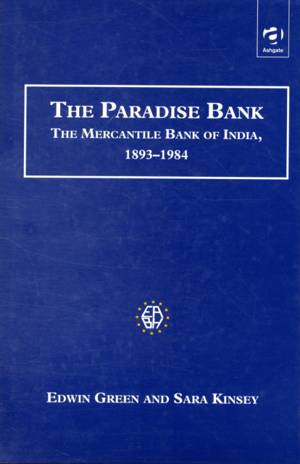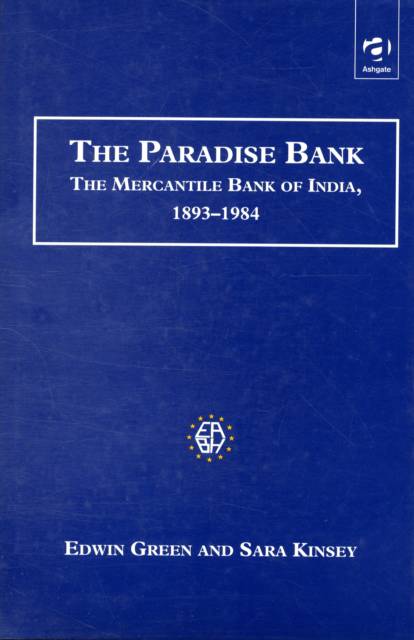
- Afhalen na 1 uur in een winkel met voorraad
- Gratis thuislevering in België vanaf € 30
- Ruim aanbod met 7 miljoen producten
- Afhalen na 1 uur in een winkel met voorraad
- Gratis thuislevering in België vanaf € 30
- Ruim aanbod met 7 miljoen producten
Zoeken
€ 117,95
+ 235 punten
Omschrijving
The Mercantile Bank of India was one of a small band of British-managed banks which dominated Anglo-Eastern finance for most of the 20th century. Founded in London in 1893, the Mercantile inherited the business, branches, staff and even the distinctive cable address - Paradise, London - of its forerunner the Chartered Mercantile Bank of India, London and China. In the early 1900s the Mercantile Bank re-established a strong and quietly successful business in the East. After the First World War the Mercantile played a prominent part in banking development in Malaya. In addition to maintaining its support for the trade of the Indian sub-continent, the bank also enjoyed success in Shanghai. Like its major rivals, the Hongkong Bank, Chartered Bank and the National Bank of India, the Mercantile Bank suffered grievously during the Second World War. In the post-war world it needed both to adapt to massive political change throughout the East and to diversify into new markets and new types of business. In 1959 the Mercantile became a subsidiary of the Hongkong Bank and this book explores the complex, high-level negotiations in London and the East which preceded the acquisition. Although the Mercantile Bank was fully absorbed in 1984 by the Hongkong Bank (now part of the HSBC Group), its history, business and personnel remained an important thread in the traditions of the enlarged group. This history deploys the extensive and colourful archives of the Mercantile Bank, together with the memoirs of former officials and their families. The book is plentifully illustrated from the photograph collections of the Mercantile Bank and former members of its staff.
Specificaties
Betrokkenen
- Auteur(s):
- Uitgeverij:
Inhoud
- Aantal bladzijden:
- 280
- Taal:
- Engels
- Reeks:
Eigenschappen
- Productcode (EAN):
- 9781840146851
- Verschijningsdatum:
- 20/12/1999
- Uitvoering:
- Hardcover
- Formaat:
- Genaaid
- Afmetingen:
- 156 mm x 234 mm
- Gewicht:
- 557 g

Alleen bij Standaard Boekhandel
+ 235 punten op je klantenkaart van Standaard Boekhandel
Beoordelingen
We publiceren alleen reviews die voldoen aan de voorwaarden voor reviews. Bekijk onze voorwaarden voor reviews.











